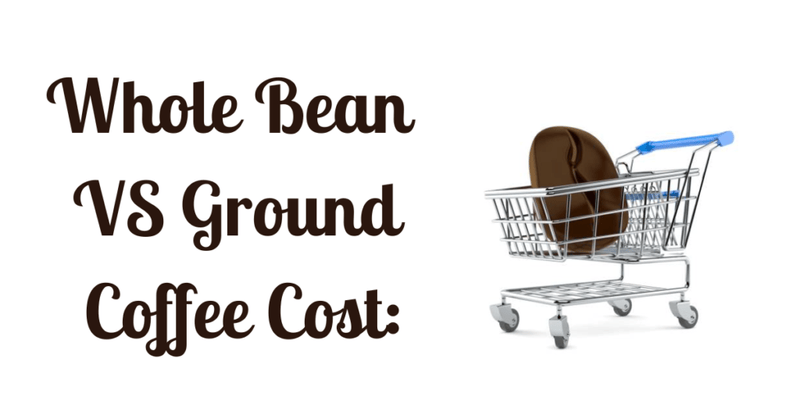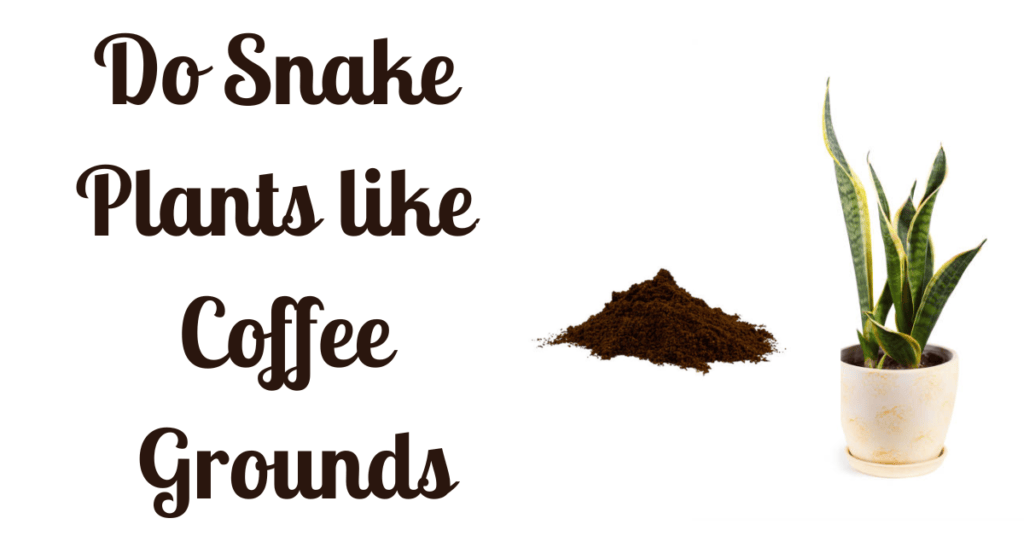A frequently asked question revolves around the drinkability of 2-year-old ground coffee. The response is nuanced, requiring consideration of various factors rather than a straightforward yes or no. Let’s delve into some of the key elements influencing the answer.
On the one hand, coffee is a bean, and beans are notorious for their long shelf life.
On the other hand, coffee is a volatile beverage, and its flavour and quality can degrade over time.
So, what’s the verdict? Can you drink 2-year-old ground coffee?
The short answer is yes, you can. The coffee will not be spoiled and will be safe to drink. However, the coffee would taste better if it were fresh.
The longer answer is more complicated. When coffee is ground, the surface area of the beans is increased, which accelerates the oxidation process.
In this article, we aim to provide comprehensive information regarding the consumption of Can you drink 2-year-old ground coffee.
Table of Contents
Can You Drink 2 Year Old Ground Coffee: Is 2 Year Old Ground Coffee Still Good?

While consuming 2-year-old ground coffee is possible, its flavour and quality might be diminished.
When coffee is exposed to air, it undergoes oxidation, causing the flavour compounds to break down over time.
Ground coffee has a larger surface area, making it more susceptible to oxidation than whole beans.
As a result, the flavour and aroma of the coffee may become dull, flat, or even stale after an extended period.
To determine if the coffee is still suitable for consumption, you can consider the following 4 factors:
Storage Conditions:
Proper storage is crucial for preserving the quality of coffee.
If the ground coffee has been stored in an airtight container in a cool, dark, and dry place, it is more likely to retain its flavour for longer.
Packaging & Smell Test:
Coffee that is vacuum-sealed or packaged in nitrogen-flushed bags will have a longer shelf life than coffee stored in regular packaging.
Give the coffee a whiff to check for any off-putting or rancid odours. If the aroma is noticeably unpleasant or sour, it’s best to avoid consuming it.
Taste Test:
The coffee has significantly degraded if the flavour is noticeably stale, lacking depth, or overly bitter.
Can Ground Coffee Go Bad?

Ground coffee remains safe for consumption beyond the indicated date on the packaging. It is typically safe to enjoy as long as there are no visible signs of mould or unpleasant odours.
Ground coffee is best enjoyed within two weeks of opening the package in terms of flavour and quality. However, if stored properly in a pantry at room temperature, it can still maintain acceptable quality for several months beyond the printed date.
Freezing ground coffee can further extend its shelf life, potentially lasting 1-2 years. When freezing coffee, it is crucial to use airtight containers or freezer bags to protect it from moisture and odours.
Ultimately, taste is a significant factor in the coffee-drinking experience. If the coffee doesn’t taste good, there is no point in forcing yourself to drink it. Personal preference and enjoyment are essential when it comes to coffee.
You’ve provided some helpful insights about when to discard ground coffee and proper storage methods. Here’s a summary of the information:
Discard ground coffee if you notice mould, wet lumps, or pantry insects in the bag or container. If the smell is off or unpleasant, it also indicates that the coffee should be discarded. These are signs of potential contamination or degradation.
Suppose the quality of the brewed coffee could be more satisfactory or meet your expectations regarding taste and flavour. In that case, consider using fresher coffee grounds for a better experience.
Ground coffee can still be used sustainably, such as composting, natural exfoliant, or odour absorber.
When Storing Ground Coffee:
Store ground coffee in a cool, dry place. It’s best to keep it in the original packaging, but if opened, transfer it to an airtight, opaque, and resealable container. Avoid storing it in the fridge or freezer, as these environments can introduce moisture and odours that may affect the coffee’s quality.
Use a dry spoon or scoop to prevent moisture from contacting ground coffee. Wet utensils can contribute to the development of mould or clumping.
When Freezing Ground Coffee:
Freezing ground coffee might not enhance its quality compared to storing it at room temperature. However, if you freeze it, ensure the grounds are stored in a tightly sealed container to minimize exposure to air, moisture, and other odours in the freezer.
Avoid defrosting and refreezing the coffee grounds repeatedly. Instead, use the frozen grounds directly as needed without thawing them.
By following these guidelines, you can help maintain the quality and safety of your ground coffee for a more extended period.
How Long Does Ground Coffee Last At Optimal Quality?
Freshness of Whole Bean Coffee: When stored correctly, freshly roasted whole bean coffee maintains its peak flavour for 2-4 weeks after roasting. The protective outer shell of the bean acts as a barrier, preserving the quality during this time.
Limited Shelf Life of Ground Coffee: In contrast, ground coffee has a shorter shelf life of just 1-2 weeks before the flavour and aroma begin to diminish. Grinding the coffee exposes the inner oils to oxygen, hastening the staling process.
While whole-bean coffee can retain optimal quality for up to a month, pre-ground coffee is best enjoyed within 1-2 weeks of grinding to ensure maximum freshness.
Why Does Coffee Get Stale And Lose Flavor?

One primary reason for the staleness of ground coffee is oxidation.
During the grinding process, the protective layer of the coffee beans is breached, exposing the inner oils to oxygen.
This interaction oxidizes the oils, breaking them down and losing the coffee’s distinct aromas and flavours.
Loss of Carbon Dioxide:
As coffee ages, it naturally emits carbon dioxide (CO2) gas.
This gas contributes significantly to the coffee’s unique aromas and flavours.
However, as time progresses, these carbon dioxide gases escape into the atmosphere, resulting in the coffee losing its vitality and becoming flat.
Grinding Accelerates Staleness:
Grinding the coffee intensifies both the oxidation process and the loss of carbon dioxide.
Consequently, pre-ground coffee tends to become stale faster than whole beans.
Proper storage can mitigate these processes but cannot entirely prevent them.
Understanding these factors is crucial for coffee enthusiasts seeking to preserve and savour the freshness of their coffee over time.
Can You Drink Expired Coffee?
Coffee typically does not have a strict expiration date like perishable food items do. Instead, coffee often comes with a “best by” or “roasted on” date, indicating when it is expected to be at its freshest. However, even after this date, you can still drink expired coffee in many cases.
The main concern with expired coffee is the degradation of flavour and aroma over time. Ground coffee and coffee beans can lose their freshness, and the oils within them can become rancid. While drinking expired coffee might not be harmful, it may not taste as good as fresh coffee.
Suppose your coffee has been appropriately stored in a cool, dark, and airtight container. In that case, consuming even after the expiration date might still be okay. However, suppose the coffee has been exposed to air, light, or moisture or has a noticeable off-putting odour or taste. In that case, it’s best to discard it.
In summary, while it’s generally safe to drink expired coffee, the quality of the flavour may be compromised. Using your senses, such as smell and taste, is advisable to determine if the coffee is still enjoyable.
What Happens If You Drink Expired Ground Coffee?
Consuming expired ground coffee is indeed not recommended. The flavour of coffee aroma and acidity can deteriorate over time, leading to an unpleasant taste experience. While drinking past-ground coffee is unlikely to be harmful, you may need more time to meet your expectations in terms of quality and enjoyment.
The oxidation process that occurs over time can break down the compounds responsible for coffee’s desirflavourlavor and promote, resulting in a less flavorful and aromatic cup. This degradation may also lead to an unpleasant aftertaste as the oils and acids break down.
Even if the coffee has yet to expire, improper storage can accelerate the deterioration process. Exposure to air and humidity can cause the flavours and aromas to degrade more rapidly, resulting in a less satisfactory drinking experience.
Therefore, adhering to the expiration date and consuming ground coffee within a reasonable period is advisable to ensure the best flavour and quality. Proper storage in airtight containers in a cool, dry place can also help maintain the freshness of the coffee for a longer time.
How Should you Store Coffee to Prevent it from Spoiling?
The key to preserving the freshness of coffee beans lies in proper storage.
The choice of storage method depends on the coffee format—whether it’s whole beans, ground, or in pods.
How to Store Coffee Beans:
Whole beans have a longer shelf life than pre-ground coffee, especially when stored in an airtight container.
If keeping them in their original bag, ensure you remove all air, seal it tightly, or use an airtight container with a vacuum pump (like an OXO Pop container).
Keep the container away from heat and sunlight for optimal freshness.
How to Store Ground Coffee:
For the freshest flavour, grinding whole beans just before brewing is ideal.
However, pre-ground coffee is more convenient.
The storage method is the same as for entire beans—use an airtight container and keep it away from heat and light.
How to Store Coffee Pods:
Single-serve coffee pods should be protected from light and heat.
While they are already sealed, storing them in a jar or another airtight container is a good practice.
Refrigeration and Freezing Misconceptions:
Contrary to popular belief, storing coffee beans and grounds in the refrigerator is not recommended.
Coffee beans are absorbent, and the fridge can introduce unwanted odours and accelerate staleness due to moisture loss.
Freezing Coffee for Extended Storage:
The freezer is a better option for extended storage but requires the right approach.
Place the coffee in its original bag within a Ziploc bag, remove excess air, and store it in the freezer.
This method preserves quality for a few months. When ready to use, thaw the coffee completely before brewing.
Remember, once melted, avoid returning the coffee to the freezer to prevent temperature-related degradation of the beans.
Can You Freshen Up Old Coffee?
Regrettably, once coffee has undergone the staling process, there is no method to reverse it and restore its freshness.
Despite this limitation, there are specific measures you can take to potentially enhance the taste of old coffee:
Adjust Coffee-to-Water Ratio: Using less coffee in water can mitigate bitterness and harshness caused by degraded compounds.
Coarser Grinding: Opt for a coarser grind to extract less overall, helping to limit the over-extraction of undesirable elements.
Brew with Cooler Water: Lowering the brewing water temperature extracts less, preventing the extraction of stale flavours.
Explore Cold Brew: Cold brew, steeped in cool water, reduces acidity and bitterness, offering a different flavour profile.
Enhance with Cream and Sugar: Mask some stale notes by incorporating dairy and sweeteners into your coffee. It’s important to note that these suggestions aim to improve the experience of stale coffee rather than restore it to a freshly brewed taste. The ultimate solution is fresh, recently roasted coffee for an optimal and satisfying coffee experience.
Old Ground Coffee In Gardens
Coffee grounds are an excellent addition to compost piles, as they are rich in nutrients like nitrogen, potassium, and magnesium. These minerals can benefit the growth of plants in your garden.
This can benefit plants that thrive in acidic conditions, such as azaleas, rhododendrons, and blueberries.
Coffee grounds also serve as effective mulch, providing protection against weeds and helping to retain moisture in the soil. Additionally, they attract earthworms, which contribute to soil aeration and enrichment.
Incorporating old coffee grounds into your garden can enhance soil fertility, support plant growth, and promote a healthy garden ecosystem. Your plants will benefit from coffee grounds’ valuable nutrients and conditions.
Can You Drink 2 Year Old Ground Coffee: FAQS
Can I still Use Expired Ground Coffee?
If its aroma lacks depth, its taste is likely to be lacking, too, as the scent contributes significantly to its flavour. While consuming coffee past its expiration date should only make you ill if it’s mouldy, it’s important to note that drinking expired coffee isn’t necessarily advisable.
What is the Shelf Life of Ground Coffee?
Upon opening, contact with air accelerates oxidation, shortening the timeline to about 3-4 months. These guidelines also extend to coffee bags. Hence, storing opened-ground coffee in an airtight container is advisable.
Do Expired Coffee Grounds still have Caffeine?
Though the delicate flavour notes of coffee begin to deteriorate shortly after air exposure, caffeine, a more stable compound, typically retains its potency for months without experiencing significant effects.
What does Expired Ground Coffee Taste like?
To identify an undesirable taste, brew a cup and allow it to cool for an hour. Take a sip, and if you notice heightened sourness and bitterness compared to your usual experience, it could indicate that the contents of your coffee bag have deteriorated.
Wrapping Up!
In conclusion, drinking 2-year-old ground coffee may offer a different flavour profile, as coffee tends to lose its freshness and aroma over time.
While it is safe to consume, the taste may be compromised, resulting in a less satisfying experience.
To enjoy the best coffee flavour, using freshly ground beans whenever possible is advisable, ensuring a more prosperous and delightful cup.
Can You Drink 2-Year-Old Ground Coffee? It’s safe, but the taste might not be as satisfying as fresh coffee.







